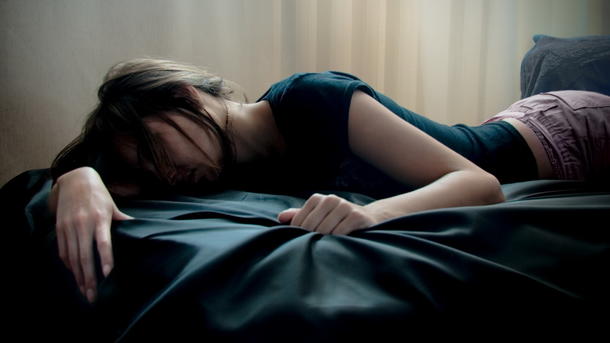
Every year, the depression becomes increasingly prevalent around the world. According to who forecasts, in the next decade is a mental disorder on prevalence will overtake cardiovascular disease, writes likar.info.
Depression is accompanied by such symptoms as depressed mood, loss of ability to enjoy, violations of thinking, and motor retardation. Patient depressed person loses interest in life, their usual activities and others, it decreases self-esteem. Some patients on the background of depression abusing alcohol or drugs.
Depression can occur as single episodes of illness of varying severity, or be chronic in nature. In some patients, long-term depression reaches considerable severity, and at others – is repeated in heightened form.
Symptoms of depression
Depression has emotional, physiological, behavioral, and mental manifestations.
Emotionally ill person is suffering from anguish, despair, oppression and depression, anxiety. He becomes irritable, constantly feeling the guilt. Depression is often accompanied by anxiety about the future and health of our families. With deep depression the person loses the capacity to experience any feelings.
The physiology of depression include sleep disturbance, change in appetite, constipation, decreased sexual desire, fatigue, aches and discomfort in the body.
The man is passive and avoids contact with other people, it is difficult to focus and make decisions. He sees the future in black colors. His troubled thoughts about his own uselessness and helplessness, and in severe cases thoughts of suicide.
In contrast to the usual deterioration of mood, clinical depression these symptoms (or part thereof) are stored for at least two weeks.
What triggers a worsening of depression?
Exacerbation of depression can vary with the season. For example, the symptoms appear in the fall or spring. Climate change, “resetting” the biological clock – the other common causes of exacerbation. Patients with chronic depression exacerbation is often triggered by premature cessation of the medication.
The worsening of the disease in the offseason due to lack of sunlight, lack of vitamins, sedentary lifestyle. Climate change also contribute to degradation: changes in atmospheric pressure, sudden changes in temperature, natural events increase anxiety, anxiety and fear.
The transition from one season to another is accompanied by hormonal changes and hormonal changes affect mood.
In women, the aggravation of depression may be related to the reproductive cycle. So, some women suffer from monthly premenstrual exacerbation of depressive syndrome, which corresponds to the menstrual cycle. Postpartum depression and depression on the background of menopause can last for several weeks or months.
The likelihood of aggravation of depression due to the premature discontinuation of antidepressants is 80%. The disease becomes harder to treat.
Prevention of acute depression
After completing the basic course of therapy in the treatment of depression the patient after the normalization of the state support is necessary to pass the course. This phase may last 4-6 months or more.
As shown by the results of an experiment conducted by psychiatrists from the United States, patients with depression are able to control the manifestation of the disease, learning to samoobsluzhivanie signs. Subjects who have undergone cognitive therapy and learned to identify the signs heralding the exacerbation and relapse, were able to take action to prevent another episode of depression.
Prevention of relapse of depression contribute to avoiding harmful habits, physical activity, nutrition, communication with family and friends.
Treatment of acute depression
If we are talking about clinical diagnosis of “depression”, then the treatment must be under the supervision of a physician. Only the doctor selects a drug for the treatment of antidepressants and their dosage is tailored to the individual patient.
A method for the treatment of seasonal depression, the doctor selects depending on the form of the disease. The majority of doctors recommends that patients lot of walking in the morning to get more sunlight. You may also need the use of antidepressants or light therapy (phototherapy). During this procedure, the patient is exposed to bright light.
An important addition to the treatment of depression is psychotherapy. With its help, the patient develops the skills of emotional self-regulation that will help him continue to cope with crisis situations. To overcome depression it is important to support loved ones.







